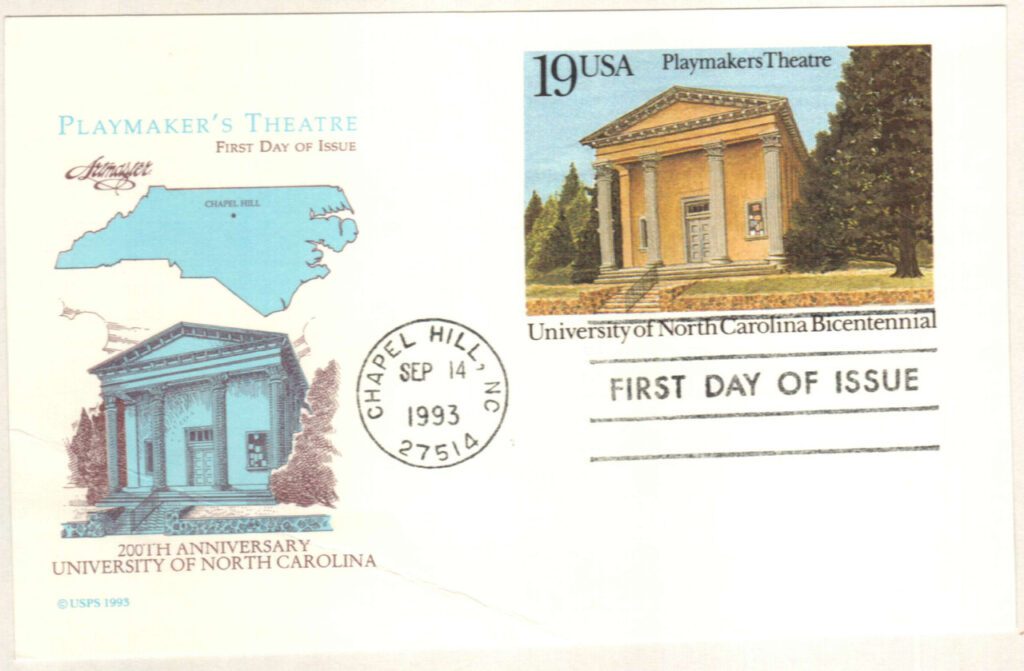On December 11, 1789, the University of North Carolina at Chapel Hill was established. It’s the oldest public university in the United States in terms of beginning instruction as a public school.
North Carolina adopted its state constitution in 1776. The constitution’s Article 41 called for the establishment of affordable schools and universities. In 1784, Samuel Eusebius McCorkle submitted a bill to the North Carolina General Assembly proposing the establishment of a state university. However, that bill was rejected due to financial and political concerns.
Five years later, the state general assembly chartered the University of North Carolina on December 11, 1789. The state selected the site of New Hope Chapel for its university for “the purity of water, the salubrity of the air and the great healthfulness of the climate.” The site was also centrally-located at the intersection of two important roads. The cornerstone of the university’s first building was laid on October 12, 1793, and the first students arrived for classes on February 12, 1795. The first class had 41 students taught by a faculty of five. The school awarded its first seven diplomas in 1798.
The University of North Carolina is considered the oldest public university in the country, in terms of beginning instruction as a public school. Two other schools are older. The College of William & Mary was chartered in 1693 as a private institution, and didn’t become a public university until 1906. The University of Georgia was chartered in 1785, but it didn’t begin classes until 1801.
When the school was first opened, its curriculum was meant to educate students for state leadership. By the 1810s, the school expanded its offerings to include natural sciences and in 1831 it installed the first astronomical observatory at a state university in the US.
The school was one of the few in the South to remain open during the Civil War, though it only had 47 students by 1864. After the war, the school struggled and closed from 1870 to 1875. When it reopened, the school invested in its scientific programs. In particular, it worked with farmers by analyzing fertilizer and soil as they related to different crops grown in the state.
The university opened a normal school (for training high school graduates to be teachers) in 1877. It was the first university summer school and the first normal school associated with a US university. Over the years, the school expanded to include schools of law, medicine, pharmacy, education, commerce, social work, public health, dentistry, journalism, and nursing. The school was desegregated in 1955, and began admitting women in 1963.
In 1959, the University of North Carolina, Duke University, and North Carolina State University combined their resources to open the North Carolina Research Triangle Park. This research center serves industry and has brought great prosperity to Durham, Raleigh, Chapel Hill, and the surrounding areas.
Today, the school spans 729 acres and offers more than 70 fields of study between 13 separate professional schools. Its student paper has won national awards and its radio station made the first internet radio broadcast. Twelve professors and students have earned Nobel prizes, 23 have won Pulitzer Prizes, and 51 were Rhodes Scholars. UNC’s sports teams are called the “Tar Heels,” a reference to the state’s production of tar and pitch in the 1700s.
| FREE printable This Day in History album pages Download a PDF of today’s article. Get a binder or other supplies to create your This Day in History album. |
Discover what else happened on This Day in History.







Great hospitals too.